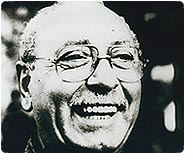|
|
 |
 The Affinities of Exile and the Sound of “Roots that Never Were:”
The Affinities of Exile and the Sound of “Roots that Never Were:”
A Descarga Oriental Jam Session Emerges in New York
Algeria and Cuba are surprisingly connected by a cultural thread originating in Andalusian Spain around 900 AD. During this era of Arab rule and intercultural tolerance, a particular cultural blend of Arabic, African, Jewish, and Latin elements was developing that would later be carried throughout the Spanish Empire.
In a latter-day encounter between the far ends of this cultural empire, Cuban percussionist Roberto Rodriguez meets Algerian pianist and vocalist Maurice El Medioni on the new album Descarga Oriental: The New York Sessions on Piranha Musik. Says Rodriguez, who also arranged and produced the album, “I was asked to bridge two worlds. As I listened, the Arabic and Sephardic connection became very clear, the strong presence of the African rhythms, as well as the beautiful and romantic melodies, just like in a Cuban song.”
El Medioni, Grandmaster of Raï (once called the “Rubén Gonzaléz of the Maghreb”), joined Latin super-drummer Rodriguez in New York for a Cuban-Oriental jam session; dreaming of roots that never were. Or were they? Both of their musical styles can be traced to Al-Andalus: the Muslim-dominated areas of the Iberian Peninsula and North Africa (maghreb) around the turn of the first millennium. The Arabic influence on Spanish culture is seen in the Moorish architecture and food found across the Latin world.
“My family came from Spain in 1492 following the inquisition,” remembers El Medioni. “We know they came from the south, from Andalucia. And after that the family lived in Algeria. Up until my mother’s generation we had always spoken Spanish at home, and Arabic. Now we only speak French.”
Recounting their first meeting, Rodriguez recalls, “Here we were, an Algerian Jew from Oran via Paris to Marseilles, and a Cuban from El Vedado, Havana, via Miami Beach to Manhattan’s East Village. One of the first things Maurice said to me with his very passionate Algerian-French accent was ‘Roberto! We are going to make great music! Your people and my people are beautiful people!’
The turn of the second millennium in Andalusia is remembered fondly as a utopian era when Jews, Muslim, and Christians, Arabs, Berbers, and Europeans lived in harmony. Andalusian cultural influences radiated across the Mediterranean to Algeria, and a few hundred years later, across the Atlantic through the colonization of the Americas.
Raï superstar Khaled, who cites El Medioni as his childhood hero and musical inspiration, says, “I’ve always loved the way Maurice plays. He represents the times when the music was pure and there was no war between Jews and Arabs, when we met to make music and share things.”
Descarga (which literally translates as ‘to unload’ and is used to refer to a Cuban jam session) celebrates this era, and weaves together the local influences of both El Medioni and Rodriguez with memory, history, and innovation. The result is a rich, transcontinental tapestry that crosses back and forth through the Latin rhythms rooted in Andalusian Spain.
On the album’s opening track, “Oran, Oran” El Medioni remembers his childhood Jewish neighborhood in the port city of Oran. He tells stories that connect the disparate Spanish-Jewish-Arab elements of Andalusian culture: buying Spanish sweets and drinks sold in the shops; celebrating the Spanish Passover (jour de la mouna) where Jews, Christians, Musulmans (Muslims) all celebrated together; everyone partied with everyone, everyone was on good terms. However, the memories are often bittersweet: “Money was missing,” he sings. “There were no figs” and “I never went on vacation.”
Though El Medioni never went on holidays (“I never even knew France, except what I saw on the map”), he would soon know the world, not by choice, but by force. In 1962, after eight years of civil war, Algeria gained independence from France and most Algerian Jews, including Maurice and his family, were forced into exile. “Life was good in Algeria,” he remembers, “but when we left, we had to live hand to mouth. It’s very tough to be driven from your country when you don’t want to leave. It’s not like being an emigrant searching for a better life.”
Likewise, Roberto Juan Rodriguez’ life and music are shaped by the experience of exile from his native Cuba. When he arrived in Miami at the age of nine, Rodriguez’ Cuban culture met the Jewish Diaspora of Florida. He soon learned of the affinities of exile and that there were musical affinities as well, so he supplemented playing in the bands of his father with playing music for a Yiddish theatre and at bar mitzvahs. He moved to New York City in the ’80s and was thrilled by the Klezmer Revival underway, taking the opportunity to start playing with experimental Jewish musicians.
It is fitting that El Medioni and Rodriguez should meet in the multicultural mash-up of New York for their Cuban-Oriental jam session. In the quintessential city of the uprooted, they find ‘affinity in exile’ as well as the experimental freedom and innovation that it affords. But like a dream, the music expresses longing for a past that may never return. El Medioni sings to his childhood home: “Oran, Oran, I won’t forget you; I too think of you; Oran Oran, someday we will see each other again, and we will always love each other.”
|
|
 |
|
|
|